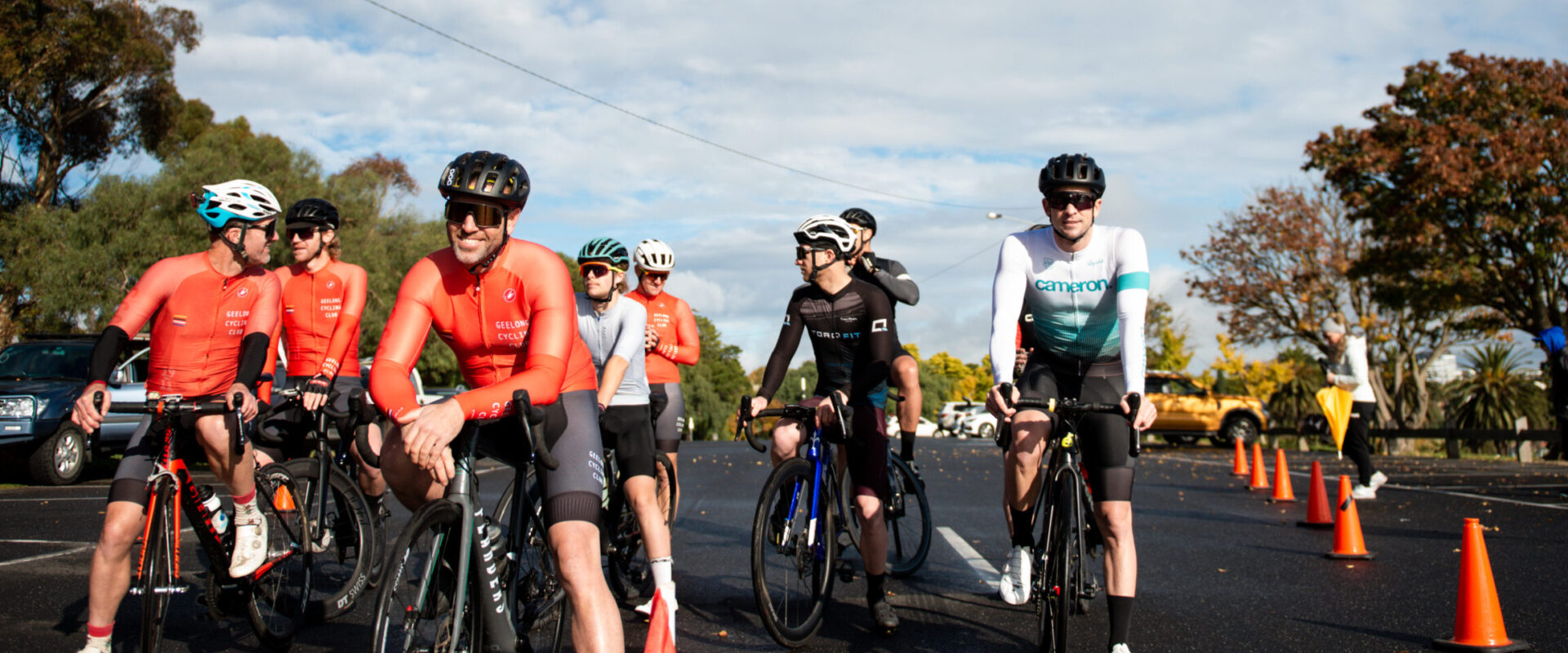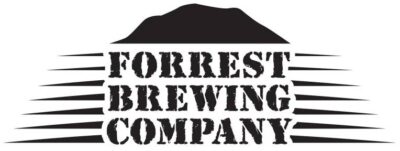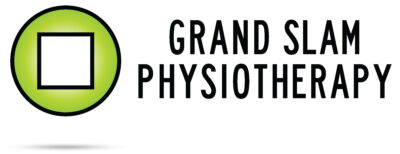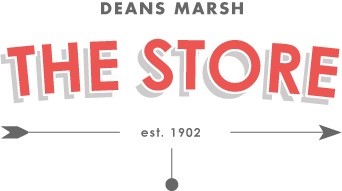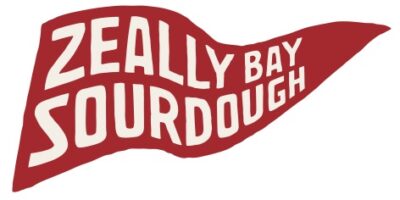CONTENTS
POLICY
1. Introduction
2. Purpose of Our Policy
3. Who Our Policy Applies To
4. Extent of Our Policy
5. Club Responsibilities
6. Individual Responsibilities
7. Protection of Children
7.1 Child Protection
7.2 Supervision
7.3 Transportation
7.4 Taking Images of Children
8. Anti-Harassment, Discrimination and Bullying
8.1 Cyber Bullying / Harrassment policy
8.2 Social media policy
9. Inclusive Practices
9.1 People with a Disability
9.2 People from Diverse Cultures
9.3 Sexual & Gender Identity
9.4 Pregnancy
10. Responding to Complaints
10.1 Complaints
10.2 Complaint Handling Process
10.3 Disciplinary Measures
10.4 Appeals
11. Member Protection Information Officer
11.1 What DO Member Protection Information Officers do?
11.2 What DON’T Member Protection Information Officers do?
Attachment 1: Working With Children Check Requirements
1.1. Member Protection Declaration
1.2. Working with Children Check Requirements
Attachment 2: Reporting Forms
2.1 Record Of Complaint
MEMBER PROTECTION POLICY (MPP) – GCC
1. Introduction
The Geelong Cycling Club has been part of the Geelong and District Community since 1911 and is on the verge of significant growth period. We aim to become one of Australia’s premier cycle racing and development club.
The club is one of 55+ affiliated cycling clubs within Victoria which operate under the banner of Cycling Victoria and holds cycling events throughout Geelong and districts.
The Geelong Cycling Club is the only club in the region to offer road and track racing in all age categories from Juniors, through to Seniors and Masters. With expanding junior development programmes, we have a special responsibility for child safe environment. As well as juniors, all club members have the right enjoy racing in a friendly non-discrimatory environment.
2. Purpose of Our Policy
The main objective of our Member Protection Policy (policy) is to maintain responsible behaviour and the making of informed decisions by participants in this club. It outlines our commitment to a person’s right to be treated with respect and dignity, and to be safe and protected from abuse. Our policy informs everyone involved in our club of his or her legal and ethical rights and responsibilities and the standards of behaviour that are required. It also covers the care and protection of children participating in our club’s activities.
3. Who Our Policy Applies To
Our policy applies to everyone involved in the club including committee members, administrators, coaches, officials (umpires/referees/judges), players, parents and spectators.
4. Extent of Our Policy
Our policy covers unfair decisions (e.g. team selection) and actions, breaches of our code of behaviour and behaviour that occurs at practice, in the club rooms, at social events organised or sanctioned by the club (or our sport), and on away and overnight trips. It also covers private behaviour where that behaviour brings our club or sport into disrepute or there is suspicion of harm towards a child or young person.
5. Club Responsibilities
We will:
implement and comply with our policy;
promote our policy to everyone involved in our club;
promote and model appropriate standards of behaviour at all times;
respond to breaches or complaints made under our policy promptly, fairly, and confidentially;
review this policy every 12-18 months; and
seek advice from and refer serious issues to Cycling Victoria or Cycling Australia.
Serious issues include unlawful behaviour that involves or could lead to significant harm and includes criminal behaviour (e.g. physical assault, sexual assault, child abuse) and any other issues that our state or national body request to be referred to them.
6. Individual Responsibilities
Everyone associated with our club must:
comply with the standards of behaviour outlined in our policy;
treat others with respect;
always place the safety and welfare of children above other considerations;
be responsible and accountable for their behaviour;
follow the guidelines outlined in this policy if they wish to make a complaint or report a concern about possible child abuse, discrimination, harassment or other inappropriate behaviour.
7. Protection of Children
7.1 Child Protection
The Geelong Cycling Club is committed to the safety and wellbeing of all children and young people accessing our service. We support the rights of the child and will act without hesitation to ensure a child safe environment is maintained at all times. We also support the rights and wellbeing of our staff and volunteers and encourage their active participation in building and maintaining a secure environment for all participants.
Geelong Cycling Club acknowledges that our staff, members and volunteers provide a valuable contribution to the positive experiences of children involved in our sport. Geelong Cycling Club aims to continue this and to take measures to protect the safety and welfare of children participating in our sport by:
7.1.1: Identify and Analyse Risk of Harm
The Geelong Cycling Club will develop and implement a risk management strategy, which includes a review of existing child protection practices, to determine how child-safe and child-friendly the organisation is and to determine what additional strategies are required to minimise and prevent risk of harm to children because of the action of an employee, volunteer or another person.
7.1.2: Develop Codes of Conduct for Adults and Children
The Geelong Cycling Club will ensure that the organisation has codes of conduct that specify standards of conduct and care when dealing and interacting with children, particularly those in the organisation’s care. The organisation will also implement a code of conduct to address appropriate behaviour between children.
The code(s) of conduct will set out professional boundaries, ethical behaviour and unacceptable behaviour.
7.1.3: Choose Suitable Employees and Volunteers
The Geelong Cycling Club will ensure that the organisation takes all reasonable steps to ensure that it engages the most suitable and appropriate people to work with children (in prescribed positions).
This may be achieved using a range of screening measures. Such measures will aim to minimise the likelihood of engaging (or retaining) people who are unsuitable to work with children.
The Geelong Cycling Club will ensure that working with children checks/criminal history assessments are conducted for employees and volunteers working with children, where an assessment is required by law.
If a criminal history report is obtained as part of their screening process, the Geelong Cycling Club will ensure that the criminal history information is dealt with in accordance with relevant state requirements.
7.1.4: Support, Train, Supervise and Enhance Performance
The Geelong Cycling Club will ensure that volunteers and employees who work with children or their records have ongoing supervision, support and training such that their performance is developed and enhanced to promote the establishment and maintenance of a child-safe environment.
7.1.5: Empower and Promote the Participation of Children In Decision-Making And Service Development
The Geelong Cycling Club will promote the involvement and participation of children and young people in developing and maintaining child-safe environments.
7.1.6: Report and Respond Appropriately To Suspected Abuse and Neglect
The Geelong Cycling Club will ensure that volunteers and employees are able to identify and respond to children at risk of harm.
The Geelong Cycling Club will make all volunteers and employees aware of their responsibilities under respective state laws if they have suspicion on reasonable grounds that a child has been or is being abused or neglected.
In addition to any legal obligation, if any person feels another person or organisation bound by this policy is acting inappropriately towards a child or is breaching the code’(s) of practice set out they may make an internal complaint. Please refer to our complaints procedure. This will explain what to do about the behaviour and how the Geelong Cycling Club will deal with the problem.
7.2 Supervision
Members under the age of 17 must be supervised at all times by a responsible adult. Our club will provide a level of supervision adequate and relative to the members’ age, maturity, capabilities, level of experience, nature of activity and nature of venue. If a member finds a member under the age of 17 is unsupervised, they should assume responsibility for the member’s safety until the parent/guardian or supervisor can be found.
Parents must turn up on time to collect their child for reasons of courtesy and safety. If it appears a member will be left alone at the end of a training session with just one child, they will ask another member to stay until the child is collected.
7.3 Transportation
Parents/guardians are responsible for transporting their children to and from club activities (e.g. training and races). Where our club makes arrangements for the transportation of children (e.g. for away or over night trips), we will conduct a risk assessment that includes ensuring vehicles are adequately insured, the driver has a current and appropriate licence for the vehicle being used and appropriate safety measures are available.
7.4 Taking Images of Children
Images of children can be used inappropriately or illegally. The club requires that members, wherever possible, obtain permission from a child’s parent/guardian before taking an image of a child that is not their own and ensure that the parent knows the way the image will be used. We also require the privacy of others to be respected and disallow the use of camera phones, videos and cameras inside changing areas, showers and toilets.
If the club uses an image of a child it will avoid naming or identifying the child or it will, wherever possible, avoid using both the first name and surname. We will not display personal information such as residential address, email address or telephone numbers without gaining consent from the parent/guardian. We will not display information about hobbies, likes/dislikes, school, etc as this information can be used as grooming tools by pedophiles or other persons. We will only use appropriate images of a child, relevant to our sport and ensure that the child is suitably clothed in a manner that promotes the sport, displays its successes, etc.
8. Anti-harassment, Discrimination and Bullying
Our club opposes all forms of harassment, discrimination and bullying. This includes treating or proposing to treat someone less favourably because of a particular characteristic; imposing or intending to impose an unreasonable requirement, condition or practice which has an unequal or disproportionate effect on people with a particular characteristic; or any behaviour that is offensive, abusive, belittling, intimidating or threatening – whether this is face-to-face, indirectly or via communication technologies such as mobile phone and computers. Some forms of harassment, discrimination and bullying are against the law and are based on particular characteristics such as age, disability, gender, sexual orientation, pregnancy, political or religious beliefs, race, and marital status.
Our club takes all claims of harassment, discrimination, bullying and cyber bullying seriously. We encourage anyone who believes they have been harassed, discriminated against or bullied to raise the issue with the club (see Responding to Complaints).
8.1 Cyber Bullying / Harrassment policy
Bullying and harassment in all forms is regarded as unacceptable. Given the emergence of new telephone and internet social networks, the opportunity for unwanted and improper comments and statements has dramatically increased. Messages or statements made in these ways using these means of communication are largely instantaneous, and can easily be abused. Others may also manipulate a person by encouraging a statement to be made on twitter or facebook, for example, when the writer may be upset or vulnerable.
Bullying has the potential to cause great anxiety and distress to the person who has been the target of any comments or statements. In some cases, bullying is regarded as a criminal offence punishable by imprisonment, amongst other things. Frustration at a referee, team-mate, coach, or sporting body should never be communicated on social network channels, but rather by way of reasoned and logical verbal and written statements and where appropriate, complaints, to Club President or Member Protection Information Officer, Cycling Victoria or Cycling Australia.
8.2 Social media policy
We acknowledge the emergence of new technology and communication mediums and wishes to enable such new media to be used to benefit cycling and its participants, and to applaud achievements. This can occur due to the immediate nature of communication to a wise audience using channels such as facebook, twitter, and SMS.
However, participants within the sport need to be very mindful of a few key matters that could lead to inappropriate use of new media, at times unintended, and at other times without a proper understanding that once comments are made or published, they are in public for a long time, and hard to retract.
Guidelines:
• do not include personal information in social media channels;
• do not use offensive, provocative or hateful language;
• use best judgment – do not publish something that makes you the slightest bit uncomfortable, and never write/publish if you are feeling emotional or upset (or are intoxicated);
• ask for a person’s permission before posting their picture on a social networking forum;
• never comment on rumours, do not deny or affirm them or speculate about rumours; and
• always use social network forums to add value and promote cycling in a positive way.
9. Inclusive practices
Our club is welcoming and we will seek to include members from all areas of our community.
9.1 People with a disability
Where possible we will include people with a disability in our teams and club. We will make reasonable adaptations (e.g. modifications to equipment and rules) to enable participation.
9.2 People from diverse cultures
We will support and respect people from diverse cultures and religions to participate in our club and where possible will accommodate requests for flexibility (e.g. modifications to uniforms).
9.3 Sexual & Gender Identity
All people, regardless of their sexuality, are welcome at our club. We strive to provide a safe environment for participation and will take action over any homophobic behaviour.
9.4 Pregnancy
Pregnant women should be aware that their own health and wellbeing, and that of their unborn children, should be of utmost importance in their decision making about the way they participate in our sport. We recommend pregnant women to consult with their medical advisers, make themselves aware of the facts about pregnancy in sport, and ensure that they make informed decisions about participation.
10. Responding to Complaints
10.1 Complaints
Our club takes all complaints about on and off-field behaviour seriously. Our club will handle complaints based on the principles of procedural fairness (natural justice), that is:
all complaints will be taken seriously;
both the person making the complaint (complainant) and the person the complaint is against (respondent) will be given full details of what is being said against them and have the opportunity to respond (give their side of the story);
irrelevant matters will not be taken into account;
decisions will be unbiased and fair; and
any penalties imposed will be fair and reasonable.
More serious complaints may be escalated to Cycling Vuictporia or Cycling Australia.
If the complaint relates to suspected child abuse, sexual assault or other criminal activity, then our club will need to report the behaviour to the police and/or relevant government authority.
10.2 Complaint Handling Process
When a complaint is received by our club, the person receiving the complaint (e.g. President, Member Protection Information Officer) will:
listen carefully and ask questions to understand the nature and extent of the problem;
ask what the complainant would like to happen;
explain the different options available to help resolve the problem;
take notes; and
maintain confidentiality but not necessarily anonymity.
Once the complainant decides on their preferred option for resolution, the club will assist, where appropriate and necessary, with the resolution process. This may involve:
supporting the person complaining to talk to the person being complained about
bringing all the people involved in the complaint together to talk objectively through the problem (this could include external mediation);
gathering more information (e.g. from other people that may have seen the behaviour);
seeking advice from our district, regional, state and/or national body or from an external agency (e.g. State Department of Sport or anti-discrimination agency);
referring the complaint to Cycling Victoria or Cycling Australia; and/or
referring the complainant to an external agency such as a community mediation centre, police or anti-discrimination agency.
In situations where a complaint is referred to Cycling Victoria or Cycling Australia and an investigation is conducted, the club will:
co-operate fully;
ensure the complainant and respondent are not victimised;
where applicable, ensure the complainant is not placed in an unsupervised situation with the respondent(s); and
act on Cycling Victoria or Cycling Australia’s recommendations.
At any stage of the process, a person can seek advice from or lodge a complaint with an anti-discrimination commission or other external agency.
10.3 Disciplinary Measures
Our club will take disciplinary action against anyone found to have breached our policy or made false and malicious allegations. Any disciplinary measure imposed under our policy must:
Be applied consistent with any contractual and employment rules and requirements;
Be fair and reasonable;
Be based on the evidence and information presented and the seriousness of the breach;
Be determined by our Constitution, By Laws and the rules of the game.
Possible measures that may be taken include:
verbal and/or written apology;
counselling to address behaviour;
withdrawal of any awards, placings, records, achievements bestowed in any tournaments, activities or events held or sanctioned by our club;
suspension or termination of membership, participation or engagement in a role or activity;
de-registration of accreditation for a period of time or permanently;
a fine; or
any other form of discipline that our club considers reasonable and appropriate.
10.4 Appeals
The complainant or respondent can lodge one appeal against decisions of or disciplinary measures imposed by our club to Cycling Victoria or Cycling Australia. Appeals must be based on either a denial of natural justice, because of unjust or unreasonable disciplinary measure(s) being imposed, or on the grounds that the decision was not supported by the information/evidence presented and available to the club.
11 Member Protection Information Officer (MPIO)
Member Protection Information Officers are people trained to be the first point of contact within sporting organisations for any person considering making a complaint under the Member Protection Policy. MPIOs provide confidential, impartial and timely information and support. They act as a sounding board and provide information about the local complaint resolution options available to address the individual’s concerns.
MPIOs are not advocates but they may elect to accompany complainants, if requested, to talk with someone else.
11.1 What DO Member Protection Information Officers do?
• Listen
• Act as an impartial support person
• Provide information about discrimination, harassment and child abuse
• Provide information about the Member Protection Policy and the options available to resolve the complaint
• Provide information about relevant laws and the right to complain externally
• Discuss possible strategies the individual can use to deal directly with the other person
• Provide contact details for counselling or other referrals as appropriate or as requested
11.2 What DON’T Member Protection Information Officers do?
• Advocate
• Take sides or judge
• Give advice
• Intervene
• Investigate
• Breach confidentiality
Attachment 1.1: MEMBER PROTECTION DECLARATION
The Geelong Cycling Club has a duty of care to all those associated with our club. As a requirement of our Member Protection Policy, we must enquire into the background of those who undertake any work, coaching or regular unsupervised contact with people under the age of 18 years.
I ……………………………………………………….. (name) of …………………………………….
.……………………………………………………………….. (address) born ……/……/……………
sincerely declare:
I do not have any criminal charge pending before the courts.
I do not have any criminal convictions or findings of guilt for sexual offences, offences related to children or acts of violence or drug abuse.
I have not had any disciplinary proceedings brought against me by an employer, sporting organisation or similar body involving child abuse, sexual misconduct or harassment, other forms of harassment or acts of violence or drug abuse.
To my knowledge there is no other matter that the club may consider to constitute a risk to its members, employees, volunteers, athletes or reputation by engaging me.
5. I will notify the President of the club immediately upon becoming aware that any of the matters set out in clauses 1 to 4 above has changed.
Declared in the State of ……………………………………….………………………….
on ………/……./……….(date) Signature ………………………………………………………….
Parent/Guardian Consent (in respect of a person under the age of 18 years)
I have read and understood the declaration provided by my child. I confirm and warrant that the contents of the declaration provided by my child are true and correct in every particular.
Name:……………………………………………….…….
Signature:…………………………………………………
Date: ………………………………………. …………….
Attachment 1.2: WORKING WITH CHILDREN CHECK REQUIREMENTS
VICTORIA
The Working with Children (WWC) Check creates a mandatory minimum checking standard across Victoria. The Working with Children Act 2005 requires that some people who work or volunteer in child-related work require a WWC Check. The check involves a national police records check and a review of relevant findings from prescribed professional disciplinary bodes (currently only the Victorian Institute of Teaching). There is an exemption for volunteers whose own children are involved in the particular activity; however they should still be required to complete the screening process.
A person who has no criminal or professional disciplinary history will be granted an assessment notice. This notice will entitle the person to undertake child-related work in Victoria and is valid for five years (unless revoked). A person deemed unsuitable to work or volunteer with children will be given a negative notice and cannot work in child-related work in Victoria.
For more information:
www.justice.vic.gov.au/workingwithchildren or 1300 652 879
Attachment 2: REPORTING FORMS
2.1 RECORD OF COMPLAINT – The Geelong Cycling Club
|
Name of person receiving complaint |
|
Date: / / |
|
Complainant’s Name |
Over 18 Under 18 |
|
|
Complainant’s contact details |
Phone: Email: |
|
|
Complainant’s role/status in Club |
Committee member Parent General Member Spectator Coach/Assistant Coach Support Personnel Employee (paid) Other Official …………………………………. |
|
|
Name of person complained about |
Over 18 Under 18 |
|
|
Person complained about role/status in Club |
Committee member Parent General Member Spectator Coach/Assistant Coach Support Personnel Employee (paid) Other Official …………………………………. |
|
|
Location/event of alleged issue |
|
|
|
Description of alleged issue
|
|
|
|
Nature of complaint (category/basis/grounds)
Can tick more than one box |
Harassment or Discrimination Sexual/sexist Selection dispute Coaching methods Sexuality Personality clash Verbal abuse Race Bullying Physical abuse Religion Disability Victimisation Pregnancy Child Abuse Unfair decision Other ………………………………………………………………… |
|
|
What they want to happen to fix issue |
|
|
|
Information provided to them |
|
|
|
Resolution and/or action taken |
|
|
|
Follow-up action |
||
